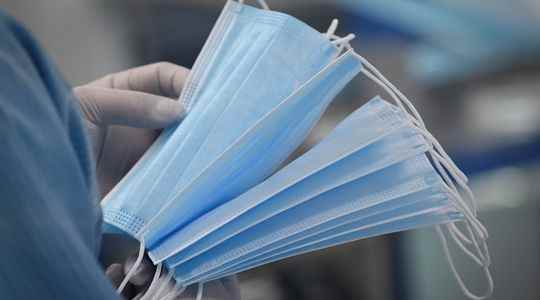French justice explicitly calls into question part of the state’s management of the health crisis… without going as far as a conviction. “The State has committed a fault by failing to constitute a sufficient stock of masks to fight against a pandemic linked to a highly pathogenic respiratory agent”, declared the Administrative Court of Paris in a decision rendered this Tuesday, June 28.
The Administrative Court of Paris was seized of 34 requests questioning the responsibility of the State in the prevention and management of the initial phase of the health crisis due to Covid-19, prior to May 2020. The applicants, who contracted Covid-19 or are beneficiaries of people who died as a result of this disease, maintained that the State had not been able to anticipate the occurrence of the epidemic, which had led in particular to a shortage of masks.
According to them, the State would have implemented faulty communication, in particular as regards the usefulness of masks for the general public. The court also decided that the state had committed a fault by making “statements which may have had the effect, in particular, of dissuading the population from using masks”.
Masks reserved for caregivers directly exposed to patients
The controversies over surgical masks had emerged very quickly in the first months of the pandemic, at the start of 2020, then persisted when massive confinement had been imposed for nearly two months in the spring of 2020. The vagueness then reigned over the interest of wear the mask to protect yourself from Covid-19 or avoid spreading it.
The government initially reserved the masks for caregivers directly exposed to the sick, preventing pharmacies from selling them to the general public in a context of insufficient stocks. With reserves of around 100 million units, France quickly found itself destitute, sometimes leaving health professionals and other exposed trades, such as supermarket cashiers, helpless.
The government has, moreover, changed tack over time on the interest of masks. Then Prime Minister Edouard Philippe, Health Minister Olivier Véran and government spokesperson Sibeth Ndiaye all initially insisted on its uselessness to the general public. But the mask finally became compulsory in closed places at the beginning of the summer of 2020 and became widespread everywhere at the end of it.
No court conviction
While many opponents have denounced a generalized “lie”, the government has always defended itself from it, believing that it had only relayed the fluctuating state of scientific knowledge on a disease still largely unknown at the time.
The scientific consensus has, in fact, solidified in the spring of 2020. Researchers now very widely believe that wearing a basic surgical mask is useful against the coronavirus, if not to protect oneself, at least to avoid infecting others.
But for the court, the uncertainty was not enough to clear the state: for several years before the pandemic, “the available scientific recommendations (…) reported the usefulness of the population wearing respiratory masks. general, especially in public transport, in the event of the occurrence of an epidemic caused by a highly pathogenic respiratory agent”, he recalls.
However, justice does not condemn the State to anything. Because it is far from completely giving reason to the complainants. The latter believe that the State is directly responsible for their illness. However, for the court, it is impossible to establish such a direct link. Indeed, justice underlines three points: the “random” nature of the transmission of the virus, the observation that a mask does not protect against Covid for sure and, finally, the fact that the State has taken to l other measures likely to limit contamination such as the encouragement to maintain physical distances.
The plaintiffs accuse the State of having failed in other obligations than those on the wearing of the mask. They thus accuse him of not having carried out massive screenings early enough to limit the spread of the disease or of having failed in the management of the shortage of hydroalcoholic gel.
